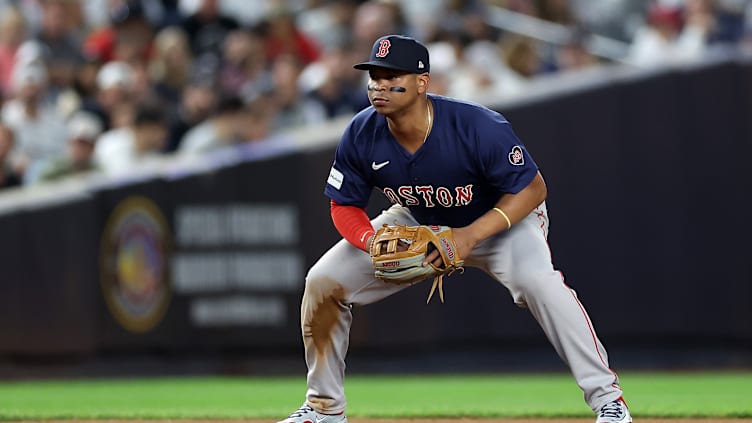
Rafael Devers will be 28 years old in October and he has one World Series to his name. Many MLB players are lucky to have even one championship in their lifetime, but the Boston Red Sox organization established a winning culture in 2004.
The Sox racked up four World Series titles in 14 years, but before they signed Devers to a 10-year, $313.5 million extension prior to the 2023 season, something changed.
Mookie Betts and David Price were traded in 2019. The Red Sox didn’t pursue a deal with 2021 playoff fan favorite Kyle Schwarber. Xander Bogaerts walked after an embarrassing contract offer in 2022. Boston didn’t get any big-ticket free-agent reinforcements before the 2024 season and a desperate Devers was forced to plead for help from ownership.
Devers’ comments were the first foray into a leadership role for the highest-paid player on the Red Sox, whom skipper Alex Cora calls “The Face of the Franchise,” against his wishes. But Devers’ tenure as the biggest man in the clubhouse shouldn’t have begun that way.
The third baseman posted an outstanding season with the young, inexperienced Red Sox. He slashed .272/.354/.516 with a .870 OPS, 34 doubles, a career-high five triples, 28 home runs and 83 RBI. He broke a Red Sox record with homers on six consecutive days and made noticeable strides defensively. He did it all with shoulder injuries he battled since spring training.
Rafael Devers — and the rest of the Red Sox clubhouse — deserves effort from the front office this offseason
Devers’ season ended early when he was placed on the injured list on Sept. 21. He underwent an MRI that just showed inflammation in his shoulders, which, thankfully, doesn’t require surgical intervention. But he wouldn’t have had to play the entire season injured if the Red Sox had adequate depth that could’ve allowed him to heal.
At first, Devers’ shoulder soreness didn’t seem to have much of an effect on his game. His slash line reached .304/.383/.609 on Aug. 2 and went down from there. He batted .196/.283/.304 in his last 30 games before the Sox decided enough was enough for his shoulders.
The Red Sox’s offense wasn’t reliable enough for the three-time All-Star to take time off later in the season to rest. After Trevor Story’s injury and shoulder surgery changed the scope of Boston’s season, Devers became the team’s most experienced position player, and long-term rest became an impossibility for the third baseman.
The Red Sox and Devers needed help this year. Had the team brought in more competent infield depth after Story, Triston Casas and Vaughn Grissom’s injuries, Devers could’ve taken more rest when it mattered. Boston could’ve been in the postseason now if it used its abundant resources to its advantage. Instead, the Sox trusted Enmanuel Valdez, David Hamilton, Garrett Cooper and Dominic Smith to keep the team afloat — they each had their moments, but no one made up for the lost offense Story or Casas would’ve supplied.
Devers may have played through his shoulder soreness even if the Sox signed or traded for competency reinforcements for the heavily injured squad. But assistance would’ve taken some pressure off him and could’ve helped Boston get into the playoffs, which Craig Breslow and Sam Kennedy just said is the team’s ultimate goal.
It’s time for the front office to execute the goal it claims is the priority. Players should not have to publicly call out for help from ownership. The prime of Devers’ career is being poorly used on mediocre Red Sox teams. If Jarren Duran played for a postseason contender, he could be a frontrunner in the MVP conversation. The saddest part is how close they were to making the playoffs — just one smart addition could’ve changed Boston’s entire campaign. But Fenway Sports Group’s penny-pinching prevailed for the sixth year in a row.
Devers and the rest of the players in the Red Sox clubhouse deserve better. The front office has five months to give them their due, and based on how long this rebuild has already taken, that’s plenty of time.





